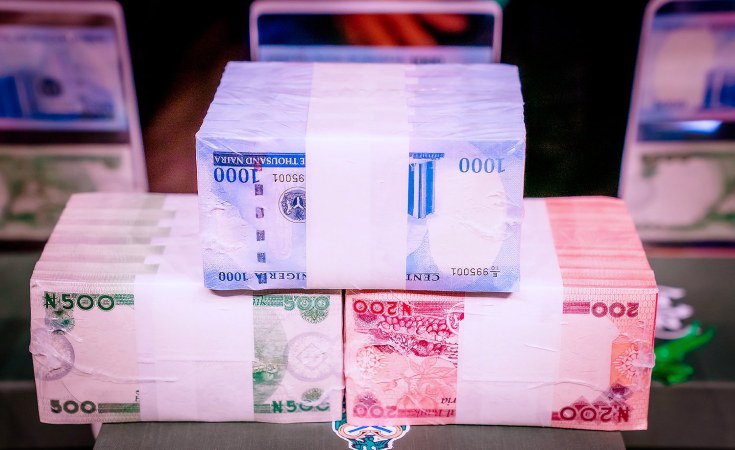Naira touched an all-time low at the official market to trade at N664.04 per $1 on Wednesday
Naira weakened significantly against the United States dollar at the Investors and Exporters window on Wednesday amidst reports that the Central Bank of Nigeria (CBN) allowed the local fiat to trade 'freely' to reset the nation's monetary policy.
Reports claimed that the CBN directed banks to remove the cap on the investors' and exporters' (I & E) window of the forex market to allow for the free float of the naira exchange rate.
Data from the FMDQ securities exchange window where forex is officially traded showed that the naira closed at N664.04 per $1 on Wednesday, the lowest the naira has ever traded in the market segment.
The currency's performance at the authorised window shows a N192.40 or 40.80 per cent depreciation from N471.67 to a dollar, the domestic currency traded in the previous session on Tuesday.
The new development comes less than a week after the suspension of the CBN governor, Godwin Emefiele, whose monetary policies experts say pushed investors away with a negative impact on the economy.
Within the past five months, the naira has traded within the benchmark of N460.00 per $1 and above amidst a forex scarcity that prompted importers and other Nigerians to source forex in the parallel market.
However, a check on the CBN website at 5:56 p.m. Wednesday did not reflect the FMDQ rate. The I&E column on the website showed N463.38 per $1, which the apex bank posted on 9 June.
"Floating the naira at the I&E window is the right way to go. We should not be expecting the CBN to quote the figure on their website because people are trading based on what they bought," a top bank official who does not want his name in print as he was not authorised to speak on the issue told PREMIUM TIMES in an interview Wednesday afternoon.
At the parallel market, currency dealers said the dollar was exchanged at N 746.00 per $1 on Wednesday as against N745.00 it traded in the previous session.
This leaves the spread between the official and unofficial window at 12.3 per cent with a margin of N81.96 at the end of Wednesday's session.
Policy Reset
The new development is part of President Bola Tinubu's attempt to phase out currency controls and unify the nation's multiple exchange rates, in addition to similar reforms in the nation's oil sector.
For years, experts and global financial institutions have raised concerns about the nation's opaque exchange rate regime. Before the last general elections, Mr Tinubu promised to unify the rate and make the market more transparent to attract foreign investment into the economy.
Wale Edun, a member of Mr Tinubu's advisory board, had on Monday suggested that the country would soon unify its exchange rates.
"I would say it would have to be done within a quarter rather than within a year," he said.
"I think you're talking; think quarters rather than years, that's where I would put it."


